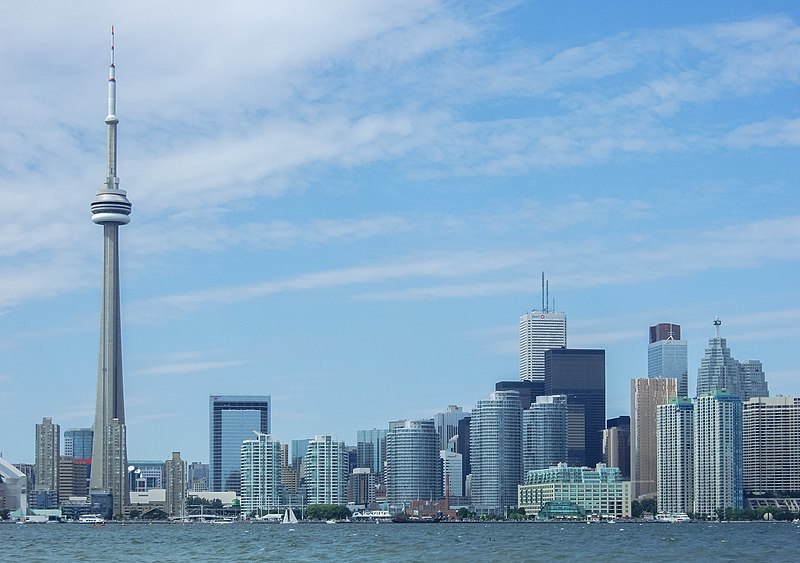In a publicly broadcast meeting on December 6, Toronto’s Board of Health voted unanimously to move forward with an exemption request which, if accepted, would decriminalize possession of controlled substances within the city.
This development positions Toronto as the second municipality in Canada (after Vancouver) to take such a step. However, even with this momentum, the motion strictly adheres to federal drug policy—the exemption in question would be from the Controlled Drug and Substances Act—leaving a final decision resting precariously in the hands of the Canadian government.
This long-awaited motion has solidified the position of Toronto’s health representatives.
“We will submit the exemption [request] before the end of the month and we will do everything we can to continue to build this united Toronto model, that will not only allow for better health outcomes for our residents but will set the stage for the federal government to say yes,” said Councillor Joe Cressy as the motion passed. “Because we cannot do this on our own, this crisis cannot be solved on our own, but we will roll this rock as far up the hill as we can and work with our federal partners to push it over the ledge.”
Cressy is the chair of the Toronto Board of Health and has been actively overseeing developments surrounding the exemption request.
This long-awaited motion has solidified the position of Toronto’s health representatives. Despite varying public attitudes towards drug use, municipal authorities believe that steps must be taken to change the status quo—which saw 521 overdose deaths in the city in 2020 alone. The motion does not make clear the specific form that decriminalization would take, however.
As it reached its final decision, Toronto Board of Health was adamant that any resulting procedures would be implemented in tandem with local harm reduction organizations, which have been laying the groundwork for decades.
But some within the harm reduction community aren’t convinced, and it will take whatever happens next to persuade them otherwise.
“It will reduce stigma and may reallocate certain resources but what it won’t do is fix toxic drug supply.”
Nick Boyce, director of the Ontario Harm Reduction Network (OHRN), has been monitoring developments in Toronto’s decriminalization push, going as far as advising the working group that helped supply data to inform the final vote.
“There’s a lot of talk about decriminalization, and what that might look like, that is critically important in terms of reframing drug use as a social and health issue and not a criminal or moral one,” Boyce told Filter. “It will reduce stigma and may reallocate certain resources but what it won’t do is fix toxic drug supply.”
Toxic drug supply is one of the many questions that will remain if the federal government plays ball with Toronto. Additional concerns encompass public perspectives around people who use drugs, the role of law enforcement and what treatment would look like under a new model.
“We got the chiefs of police on board with some model of decriminalization, but what that model looks like I think is where it can get quite contentious,” Boyce said. “A lot of the models that we are seeing are focused on health outcomes and are only looking at it from a medicalized view of substance use—and we know substance use isn’t only a health issue, it’s a social one.”
One issue that a number of Toronto’s harm reductionists point out is that whatever form decriminalization may take, it will likely be lacking in authentic influence from people who use drugs.
“They decided the terms, they decided who sits at the table and they didn’t have the right representation.”
Zoë Dodd has been involved in Toronto’s harm reduction community for many years, and is currently the co-organizer for the Toronto Overdose Prevention Society (TOPS).
“[The City] didn’t come and meet with affected communities first and ask what direction they should go in,” she told Filter. “They decided the terms, they decided who sits at the table and they didn’t have the right representation.”
Dodd also shares Boyce’s concerns over how decriminalization is being pushed strictly as a health issue, ignoring the systemic and social roots of harms. Further reducing the validity of this motion, according to Dodd, is how impacted communities were overlooked by the city leading up to this decision.
“They did not have enough Indigenous representation, they had no youth representation, they don’t want to listen to opposing views when it comes to framing it as a health care issue,” she said, referencing the possibilities of more intrusion into drug users’ lives, including coerced treatment. “There’s reasons to oppose framing it around health care and that is of course the fear of ‘net-widening.’”
Despite decriminalization’s evident potential to reduce harms, the lack of current clarity over what it would look like in practice leaves harm reductionists concerned that crucial strands of the harm reduction DNA may be omitted from the final model.
“If we don’t expunge people’s records, if we don’t see this as a racial and social justice issue, if we don’t change the laws and get rid of criminalization altogether, what difference will it truly make?” asked Dodd.
Photograph by Diego Delso via Wikimedia Commons/Creative Commons 4.0





Show Comments